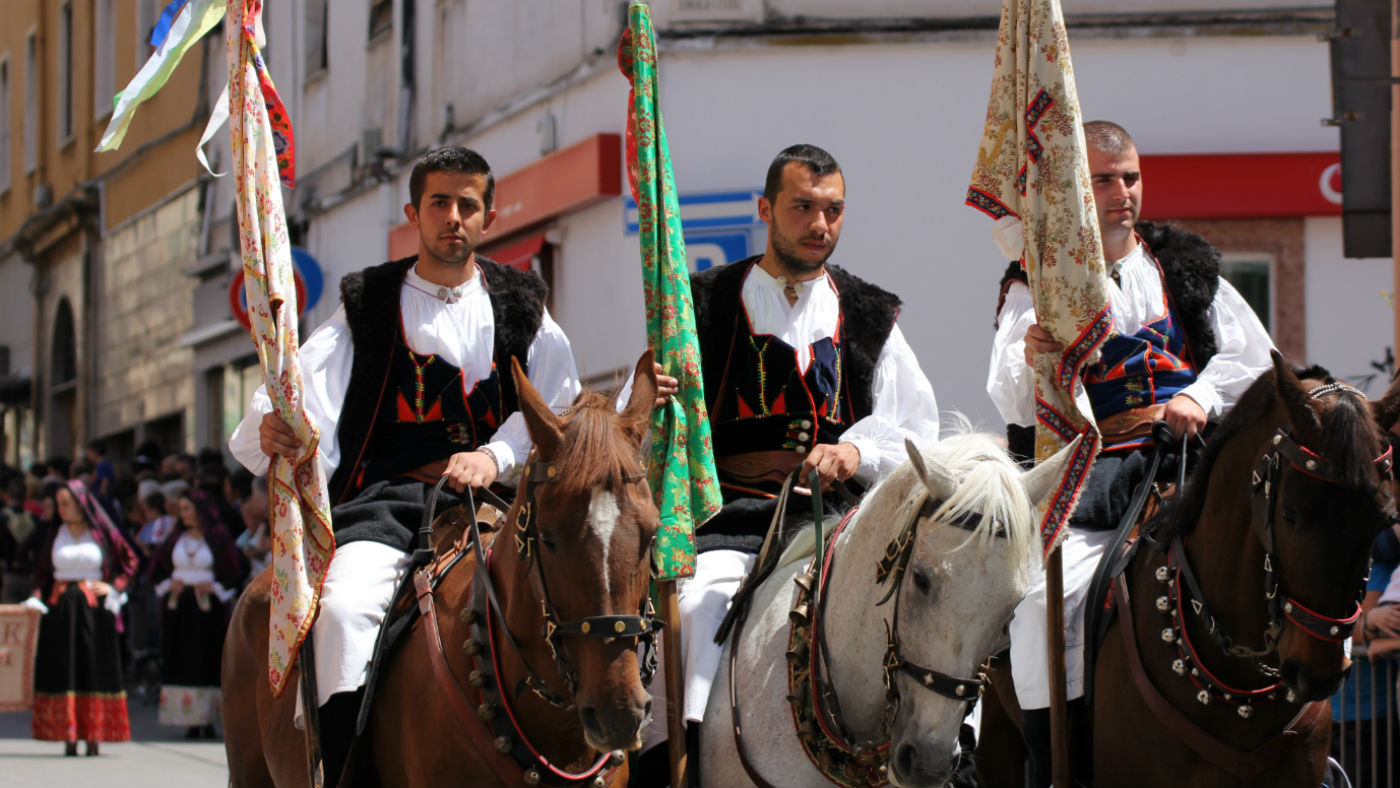Italian ‘ghost town’ selling houses for one euro
Locals in Ollolai are on a ‘crusade’ to repopulate historic Sardinian village

A free daily email with the biggest news stories of the day – and the best features from TheWeek.com
You are now subscribed
Your newsletter sign-up was successful
An Italian village is offering homes for less than £1 in a bid to avoid becoming a “ghost town”.
Ollolai is a picturesque red-roofed mountain town on the Mediterranean island of Sardinia, “famous abroad for its beaches, wine, and the locals' longevity”, says news website The Local - and for one euro (88p), a home there can be yours.
There is no catch, beyond agreeing to renovate the property into good condition within three years - an endeavour which CNN estimates would cost in the region of $25,000 (£17,500).
The Week
Escape your echo chamber. Get the facts behind the news, plus analysis from multiple perspectives.

Sign up for The Week's Free Newsletters
From our morning news briefing to a weekly Good News Newsletter, get the best of The Week delivered directly to your inbox.
From our morning news briefing to a weekly Good News Newsletter, get the best of The Week delivered directly to your inbox.
The town’s council has come up with the radical plan to save Ollolai from extinction after decades in decline.
Since the 1980s, the town’s population has almost halved, dropping to 1,300, says The Local. The decline has left many of Ollolai’s historic stone houses in disrepair.
“Once buzzing, its maze of alleys and mural-covered piazzas are now silent, as younger residents have been lured away to bigger cities,” says CNN.
Ollolai’s mayor, Efisio Arbau, described the plan to bring the town back to life as a “crusade”.
A free daily email with the biggest news stories of the day – and the best features from TheWeek.com
“We've always been tough people and won't allow our town to die,” he said.
The council offered its first one-euro house in 2015, following a handful of other shrinking rural villages in Italy who have tried similar schemes.
The first buyer did not come far - the house was snapped up by a retired Sardinian builder - but Ollolai is ready to welcome overseas arrivals.
As of the New Year, the town has received 120 enquiries from as far afield as Russia, Poland, Australia, and the USA, says The Local.
Those who do take the plunge can enjoy the rich cultural heritage of the area, whose remoteness has allowed locals to preserve ancient traditions like cheese-making and basket-weaving.
On special occasions, women can be seen in the traditional costume of red skirts, embroidered jackets and lace caps, while men might give a demonstration of s'istrumpa, an form of wrestling unique to the island.
There is one small obstacle - the region’s unique dialect. “Our language is hard to understand, even for Sardinians,” Arbau admits. “But we know foreigners love to mingle.”
-
 James Van Der Beek obituary: fresh-faced Dawson’s Creek star
James Van Der Beek obituary: fresh-faced Dawson’s Creek starIn The Spotlight Van Der Beek fronted one of the most successful teen dramas of the 90s – but his Dawson fame proved a double-edged sword
-
 Is Andrew’s arrest the end for the monarchy?
Is Andrew’s arrest the end for the monarchy?Today's Big Question The King has distanced the Royal Family from his disgraced brother but a ‘fit of revolutionary disgust’ could still wipe them out
-
 Quiz of The Week: 14 – 20 February
Quiz of The Week: 14 – 20 FebruaryQuiz Have you been paying attention to The Week’s news?
-
 Epstein files topple law CEO, roil UK government
Epstein files topple law CEO, roil UK governmentSpeed Read Peter Mandelson, Britain’s former ambassador to the US, is caught up in the scandal
-
 Iran and US prepare to meet after skirmishes
Iran and US prepare to meet after skirmishesSpeed Read The incident comes amid heightened tensions in the Middle East
-
 Israel retrieves final hostage’s body from Gaza
Israel retrieves final hostage’s body from GazaSpeed Read The 24-year-old police officer was killed during the initial Hamas attack
-
 China’s Xi targets top general in growing purge
China’s Xi targets top general in growing purgeSpeed Read Zhang Youxia is being investigated over ‘grave violations’ of the law
-
 Panama and Canada are negotiating over a crucial copper mine
Panama and Canada are negotiating over a crucial copper mineIn the Spotlight Panama is set to make a final decision on the mine this summer
-
 Why Greenland’s natural resources are nearly impossible to mine
Why Greenland’s natural resources are nearly impossible to mineThe Explainer The country’s natural landscape makes the task extremely difficult
-
 Iran cuts internet as protests escalate
Iran cuts internet as protests escalateSpeed Reada Government buildings across the country have been set on fire
-
 US nabs ‘shadow’ tanker claimed by Russia
US nabs ‘shadow’ tanker claimed by RussiaSpeed Read The ship was one of two vessels seized by the US military